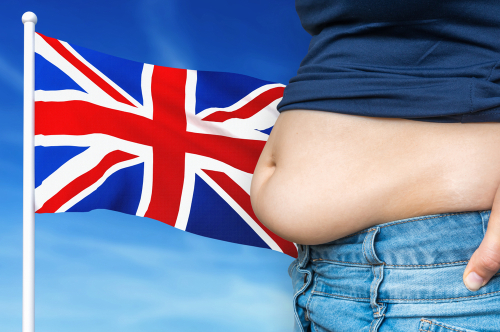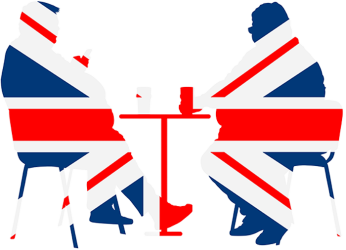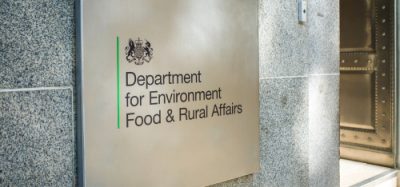How can the UK become thinner or less fat?
- Like
- Digg
- Del
- Tumblr
- VKontakte
- Buffer
- Love This
- Odnoklassniki
- Meneame
- Blogger
- Amazon
- Yahoo Mail
- Gmail
- AOL
- Newsvine
- HackerNews
- Evernote
- MySpace
- Mail.ru
- Viadeo
- Line
- Comments
- Yummly
- SMS
- Viber
- Telegram
- Subscribe
- Skype
- Facebook Messenger
- Kakao
- LiveJournal
- Yammer
- Edgar
- Fintel
- Mix
- Instapaper
- Copy Link
Posted: 21 February 2025 | Dr Clive Black | No comments yet
Forget Whitehall’s ineffective policies and bureaucratic ‘guff’. Britain’s obesity crisis demands common sense: honest conversations about diet, sensible eating and active lifestyles. It’s time to ditch the red tape and empower the public to make healthier choices. — Dr Clive Black, Vice Chairman of Shore Capital Markets and former Head of Food Policy at the NFU, writes.


Obese Britain. The UK needs to empower consumers to make healthier choice says Clive Black.
The word ‘fat’ can be a very nasty and hurtful label for people, something that kind, respectful and decent folk should be careful about using in public. That said, being fat has a broad level of common understanding. Most overweight people, the author included, wish they were less rotund, and it is undeniable that as a country the UK is obese: population-level fatness.
The failure of current public policy and Whitehall’s response
The public policy arena towards reducing fat levels in Britain, to the extent that there is one, is therefore clearly not working. If the country would be better off with millions of less fat people, then the agenda looks like it needs to change. In this respect, the rhetoric of the Minister of State for Health in England, sitting atop the bloated towers of Whitehall, does see a material need for – and benefit from – changing lifestyle behaviours, including what we eat and drink, as a key enabler of cutting the ill-health bill. Although, if there was such a miracle, would it also cut the cost of bureaucracy as a major silver lining too?
The cultural change necessary to structurally adjust the fat levels of England goes well beyond the PPE-infested corridors of Whitehall
Beyond Whitehall’s prejudices: the need for cultural change
I wish Mr Streeting well, but the cultural change necessary to structurally adjust the fat levels of England goes well beyond the PPE-infested corridors of Whitehall, with all their prejudices about whether Britain should produce any food at all, as opposed to being a massive conservation park. Not to mention its wholly distorted view of the role of meat in the diet, which has exposed concerning bias (to put it politely) at ‘The Lancet’ of all places.
Regulatory inefficiencies: the ASA, HFSS marketing and bureaucratic absurdity
Such incompetence at the heart of a self-serving Civil Service and associated agencies across the land – note the vast increase in costs and the corresponding reduction in productivity since 2019 – is manifested in a consultation by the Advertising and Standards Agency (ASA) around the marketing of food that is deemed high in salt, sugar and saturated fats (HFSS). This matter is addressed in an episode of ‘The Thick of It’ where the ‘great minds’ of the health, food and legal sectors seek to concoct the narrative. Is butter a high fat food? What about smoothies?


Could we possibly cope with an advertisement at 10pm before going clubbing for an apple, kiwi and celery shot? One policy measure is to prohibit certain advertisements before 9pm, and who would have thought Goofy has such power, as cartoons associated with promoting breakfast cereals will also be banned. Then, there is the policing of this stuff. So, let’s see what happens should these new rules come into force; but as much as the likelihood that Frank Lampard will take Coventry City to a Champions League final, I suggest that not one millimetre of fat will come off the national waistlines through the implementation of such gold mines for NGOs, lawyers, regulators and bureaucrats for whom this is a tax payer-funded honey pot. Indeed, this manner of policy is akin to the Minister for the equally questionable Department for the Environment, Food and Rural Affairs speaking on national food security, where ‘looking through the wrong end of the telescope’ is a gross understatement.
Public engagement and practical solutions: moving beyond ineffective policy
If the UK wants to be less fat, it must discuss with the masses, not Guardian readers living in Notting Hill, what constitutes a good fun and tasty diet, how to drink alcohol without pickling our livers, and how to do all this while keeping moving. None of this requires much formal intelligence, of course; it is common sense. But this common sense needs to be harnessed at all reasonable interventions by the State into people’s lives, from helping new parents to properly feed their babies, to teaching school children and society about where their food comes from, why it should cost more, and thus how to prevent self-harm.
The skewed reductionism of some single policy groups that fruit and vegetables in the UK are costly but confectionery is not, is pure bunkum. The fact is, fresh produce requires a bit of shopping and maybe preparation, while a bag of crisps, a Mars Bar or a takeaway kebab does not – and many consider the latter to taste better.
Promoting healthy choices: actions for public bodies
Public bodies can be more prescriptive in what they feed their staff – let Whitehall lead from the front on this matter, ho-ho; hospitals can stop huge quantities of confectionery and snacks being sold in in-situ stores, prison diets can be changed even if it does lead to the odd dust up – maybe prisons can become more self-sufficient in food production. Then there is the thorny subject of taxation and pricing. The list goes on and on, but it is not rocket science.
Rather, it is persistent joined up thinking – the antithesis of Whitehall. And with the resource, in terms of data collection of the NHS and our still world-class academic institutions, being outside the EU actually helps. It means that the UK can lead in measuring and evolving broad-based public policy where I continue to believe that a Minister for the Food System, working in this example with health bodies and officials, can make a real difference to improve the quality of peoples’ lives through effective coordination.
Conclusion: the need for real change and accountability
Until then, while Britain gets fatter, the ASA will stop me watching a burger advert at 9:05pm and disassociate a cartoon orangutan with coco pups and the like. One could not make such rubbish up! But even worse, working people, as Rachel from Accounts likes to call them, are paying for much of this guff. If the UK wants to be thinner, it needs to think in different ways but realise that there is no free lunch.
About the author











